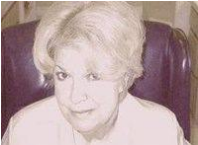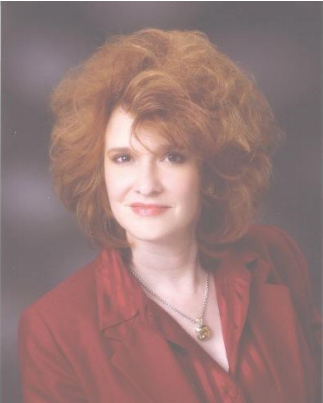by Joyce Swann for Twinas
In 1975, when I began homeschooling, I had no model to follow.
Homeschooling was so new that the word “homeschooling” had not
yet been coined. I found it necessary, therefore, to create my own
philosophy of what homeschooling should accomplish and how it should
bring about the desired results.
One of the most important components of setting up my homeschool
involved setting up the school calendar. Would I use the public
school year as my model? That seemed to be a logical choice, but I
was planning to homeschool because I disagreed with many of the
practices that make up a public education. I decided to give some
serious thought to the schedule I would follow for my school year,
and in doing so I came to the following conclusions:
- By taking a three-month summer vacation, I would be setting aside 25 percent of my child’s life as a “no learning zone”.
- If I were to factor in the time off for Thanksgiving, Christmas, Spring Break, etc., I could expect to add another 5 to 6 weeks of the year to the “no learning zone”.
- By taking these additional vacation days I would be setting aside 30 to 35 percent of my child’s life as a “no learning zone”.
In addition to the obvious time taken away from my child’s
education by opting for a shorter school year, I also considered
other factors that favor a 12-month school year. When I was in
school, the teachers always devoted the first few weeks of the new
school year to reviewing the information the students had forgotten
over the summer. Those weeks were dedicated to relearning what would
not have been forgotten if we had continued studying during the
summer months.
The final few weeks of the school year were spent “winding down”
because everyone knows that by the 1st of May the only thing
students have on their minds is summer vacation. Much of that time
was simply wasted without the teachers even pretending to teach.
Another factor that I believed favors a 12-month school year is
the discipline that continuous education provides. What career,
other than being a school teacher, provides the kind of extended
vacations that one encounters in the public school system? The more I
thought about this, the more convinced I was that our days off from
school should be the same as my husband’s days off from his job. In
fact, when I heard complaints from my students about not having all
the vacation days their friends enjoyed, I told them that school was
their job, and reminded them that when they were grown they would be
required to go to their jobs every day, except weekends and holidays.
Finally, the home school day is a short day—about 3 or 4 hours
most days. It is not too much to expect a child to spend that time
learning and developing habits that will stand for the rest of his
life. A 12-month school year may not be for everyone, but I believe
it makes sense to use childhood preparing children for the challenges
they will encounter as adults. What better way to do that than
provide a continuous, disciplined learning environment?
For more by Joyce Swann visit: http://www.frontier2000.blogspot.com
Joyce Swann
 Joyce Swann has been
a Christian since childhood and a prayer warrior for over forty
years. She became nationally-known in the 1990’s because of her
work homeschooling her ten children from the first grade through
masters’ degrees before their seventeenth birthdays. She has
been featured on Paul Harvey’s weekly radio program, CBN, and
the 1990’s CBS series, How’d
They Do That?
Joyce Swann has been
a Christian since childhood and a prayer warrior for over forty
years. She became nationally-known in the 1990’s because of her
work homeschooling her ten children from the first grade through
masters’ degrees before their seventeenth birthdays. She has
been featured on Paul Harvey’s weekly radio program, CBN, and
the 1990’s CBS series, How’d
They Do That?
She has been interviewed by Woman’s World, The National Enquirer, and numerous regional newspapers. The story of the Swann family has also been featured in the National Review and several books about homeschooling success stories.
Joyce
is the author or co-author of five novels, including The Fourth
Kingdom, which was selected as a finalist in the Christianity
Today 2011 fiction of the year awards and The Warrior
which, since its release in 2012, has had over 50,000 Kindle
downloads and hundreds of glowing reviews.
She was a popular
columnist for Practical Homeschooling for nearly decade and
she has retold her own story of homeschooling her ten children in
Looking Backward: My Twenty-Five Years as a Homeschooling
Mother. The Warrior is her first solo novel.
 Alexandra
Swann
Alexandra
Swann
In
1986, Alexandra Swann graduated at fifteen years of age with a
bachelor’s degree in liberal arts from Brigham Young University and
a GPA of 3.85. The following year, when she was sixteen, she received
a Master’s Degree in History from California State University.
After graduation, she taught history and English as a second language
for four years at El Paso Community College. In 1989, her book,
No Regrets: How Homeschooling Earned me a Master’s Degree at Age
Sixteen,
was published, in which she details her experiences with
homeschooling.
For
fifteen years, from 1998-2013, Alexandra was self-employed in the
financial services industry in El Paso, Texas. As a small business
owner who was active in the community and on various civic boards,
she learned first-hand the challenges that excessive regulations
create for small businesses. In 2012 she received the SBA’s
Regional Minority Small Business Champion of the Year award.
In
2010, Alexandra and her mother incorporated Frontier 2000 Media Group
to produce clean, wholesome, inspirational entertainment for
families. She re-released No Regrets with a new foreword to
the twentieth anniversary edition of the book updating readers on
what her family is doing today.
She is also co-author of four
Christian fiction novels including The Fourth Kingdom which
was selected as one of four finalists in the Christianity Today
2011 Christian Fiction Book Awards. Her newest solo novel, The
Planner, about the dangerous consequences of over-reaching,
progressive federal government, was released June 28, 2012.
See Alexandra's Feature on Twinas' Homeschool 101:
